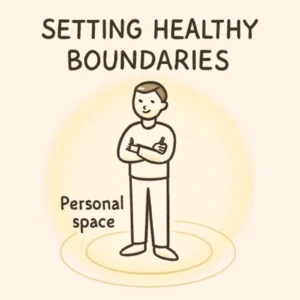Spoiler: It’s not willpower.
If you’ve ever tried to lose weight by simply “eating less and moving more,” you already know: biology doesn’t always play fair.
Hunger creeps in. Energy crashes. Metabolism slows down. And before long, you’re back where you started—except now you’re hungrier, more frustrated, and questioning everything.
Enter: weight loss drugs. Not as shortcuts, but as tools. Tools that work by changing the internal systems—hormonal, neurological, metabolic—that influence how your body handles food, fat, and hunger.
If you’re curious about how these medications work (and why they’re suddenly everywhere), you’re in the right place. Let’s unpack what’s actually happening beneath the surface.
The body fights weight loss. Yes, fights it.
Here’s a fun twist: your body doesn’t want you to lose weight.
It sees fat as security—an evolutionary backup plan in case of famine. So when you start losing it, your body pushes back. Hunger hormones like ghrelin go up. Satiety hormones like leptin go down. Your metabolism slows. Your brain literally starts craving high-calorie foods.
It’s not a lack of discipline. It’s survival instinct.
This is where weight loss drugs come in—not to override effort, but to rebalance the biology working against you.
GLP-1 receptor agonists: The headline-makers
Medicines like Zepbound belong to a powerful class called GLP-1 receptor agonists.
GLP-1 is a natural hormone your body produces after you eat. It signals your brain that you’re full, slows gastric emptying (so food stays in your stomach longer), and helps regulate insulin and blood sugar.
GLP-1 drugs mimic this hormone—enhancing satiety, reducing cravings, and slowing digestion so you feel satisfied with smaller meals.
The result? You eat less, feel fuller, and aren’t constantly thinking about food. Not because you’re forcing yourself. But because your brain finally feels like you’ve had enough.
Some drugs block fat absorption
Older medications like orlistat (still used today) work through a totally different mechanism: they block the enzymes your body uses to break down dietary fat.
Translation: You absorb fewer calories from fat. But there’s a catch—if you eat too much fat while on these meds, you may end up with, uh… digestive regrets.
It’s not a bad option, but it doesn’t target hunger or brain chemistry like newer drugs do.
Other medications adjust brain chemistry
Some weight loss medications, like phentermine-topiramate or bupropion-naltrexone, affect neurotransmitters related to hunger, reward, and satiety—things like dopamine, norepinephrine, and serotonin.
These drugs reduce appetite and food cravings by altering how your brain perceives hunger signals and how rewarding it finds food.
Think of it as turning down the volume on that voice that says, “You know what would fix this stressful day? Nachos.”
Weight loss isn’t one-size-fits-all. Neither are the meds.
Different drugs work better for different people. Some respond best to GLP-1 meds. Others may benefit more from combination drugs or fat blockers.
Doctors usually consider:
- Your BMI
- Other health conditions (like type 2 diabetes or high blood pressure)
- Previous response to medications
- Cost, side effects, and lifestyle fit
A tool is only as useful as how it’s used. That’s why finding the right one is part science, part strategy.
What weight loss drugs don’t do
They don’t erase the need for healthy habits.
They don’t “melt fat.”
They don’t work if you don’t use them consistently.
But most importantly—they don’t replace you.
Medications like Zepbound work best with sustainable eating, movement, and mental health strategies. They create space—biologically and psychologically—for those changes to take root.
also read : Steps to Take Before Taking Alternative Medicines for Hormonal Imbalances
Side effects? They exist. But so does adaptation.
GLP-1 meds like Zepbound often cause nausea, bloating, or fatigue—especially in the first few weeks. These effects are tied to how they slow digestion and alter appetite hormones.
Most people find that side effects ease over time, especially when starting with a lower dose and increasing gradually.
Still, every medication has risks and benefits. That’s why your care team matters—someone to monitor how your body responds and adjust if needed.
Final word: This is biology, not morality
Weight loss drugs aren’t a cheat code. They’re not a sign of weakness. They’re a response to a physiological system that’s designed to keep weight on, not off.
They offer a fighting chance in a game that’s been rigged by both biology and modern food systems.
Understanding how these medications work—like Zepbound and others —isn’t just about science. It’s about empowerment.
Because when you stop blaming yourself and start working with your biology, that’s when change really sticks.





